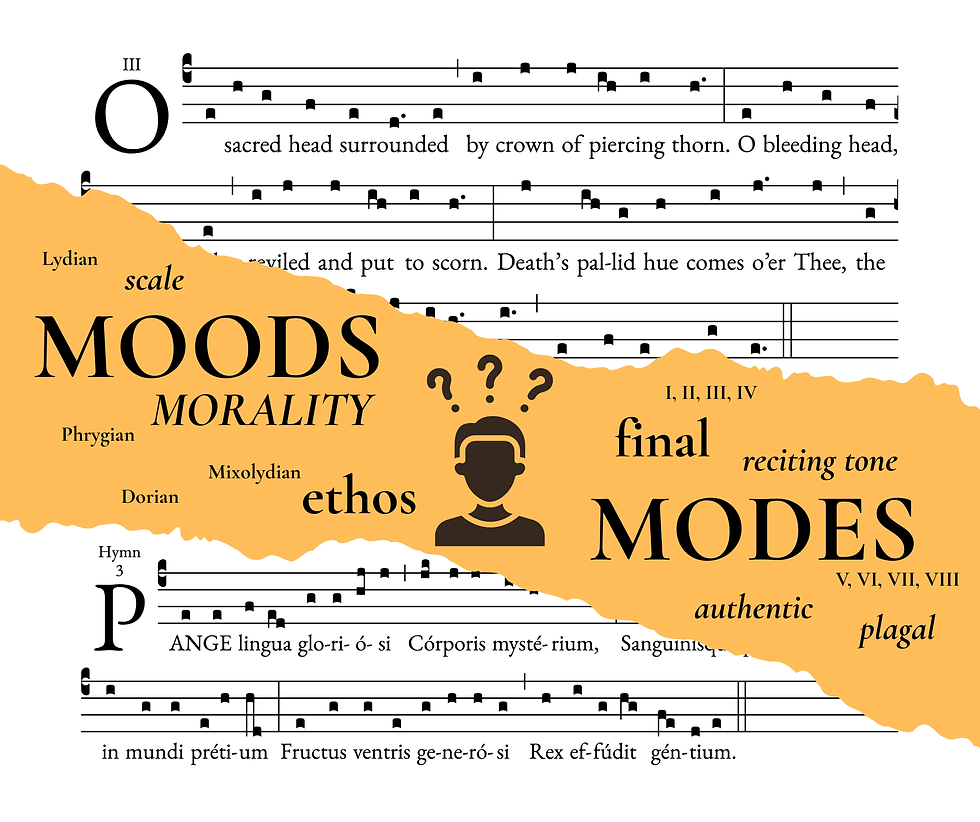"Margarita" Sunday? The Latin language and Gregorian chant
- angelamrocchio

- Jul 29, 2023
- 3 min read
When studying Gregorian chant in its liturgical context, we discover that many feasts are named after the chants they contain. Laetare Sunday and Gaudete Sunday are the rose-colored Sundays of Lent and Advent. Quasimodo Sunday is named after its introit. I ask, somewhat tongue in cheek, shouldn’t we also observe Margarita Sunday?

"Simile est regnum caelorum" is the communion chant for the 17th Sunday in Ordinary Time, Year A
Latin is at the root of many of our English words. We can usually get a general sense of a Latin word's meaning by thinking about similar English words. Take this communion chant, for instance. Can you figure out what the Latin text means simply by looking at the derivative words? Latin language and Gregorian chant
“Simile” —> similar, simile
“regnum” —> regal, reign
“caelorum” —> celestial
“homini” —> human, ad hominem, homicide
“negotiari” —> negotiator
“quarenti” —> query, inquire
“bonas” —> bona fide, bon appetit, boon
“inventa” —> “in” - into/onto, venture, advent
"una" —> unite, unanimous, Uno (the card game)
“pretiosa” —> precious
“dedit” —> dedicate
“omnia” —> omniscient, omnipotent, omnivore
“comparativit” —> compare, comparative
If you know Spanish, Italian, or French, you probably found a few more derivative words in those languages too.
Okay, this derivative exercise is great, you say, but what about “margarita”? Will the schola be singing about Happy Hour at communion?!? Languages can be such funny (and frustrating) things to study sometimes. Most sources agree that the alcoholic drink margarita got its name from a woman who went by the same name, many centuries after this chant was written. so, we can cross "cocktail" off our list of possible meanings.
The Latin word “margarita” is actually itself a derivative, from the Greek word Μαργαρίτας or “pearl”.

It’s pretty neat when we can examine a chant knowing what each specific word means. For instance, contrast the melody as it dips down at “quarenti bonas margaritas”, then climbs to the upper limit of its range at “inventa”. We can almost see the merchant bent over peering at pearls, and then jumping up with excitement at his great discovery. It's as if the melody itself is exclaiming, “Aha! I’ve found it!!!”
Here are the rest of the words:
"est" - is
"sua" - his/ his own
"et" - and (this is where "et cetera"/"etc." comes from! "cetera" means "the others")
What, then, is the real “bona margarita”? What else do you see the melody describing, now that you know what all the Latin words mean?
The mission of the International Chant Academy is to keep the beauty and meaningfulness of Gregorian Chant and Early Sacred Music alive and relevant. We foster understanding of these art forms, and teach the musical and vocal skills necessary to excellent performance.
Visit our website.
What students say...
"My experience with the Level II Course from ICA was highly enriching. Although I initially enrolled as a refresher, I found myself gaining a wealth of new knowledge. The course provided me with the tools to articulate my intuitive understanding of various chant elements. Angela's curated resources are not just commendable, but also immensely practical. Her expertise, humility, and resourcefulness shine through in her teaching, bringing a balanced approach to liturgical chant. I would recommend this class to anyone who is already familiar with reading and singing chants on a regular basis, as well as to those who are looking to introduce chants to others."
~ Lia O'Hara
Saint Joseph Catholic Church
Calgary, Alberta, Canada









Comments